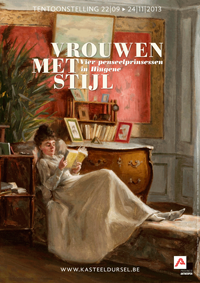This book was a gift to me from Mary, my sister’s mother-in-law – I had recently given her one of the Penguin Great Journey series which told the true story of Olaudah Equiano, a man born in Africa and taken as a slave to the Americas in the late 1700’s. Coincidentally, Mary’s reading group was reading “Someone Knows My Name” this fall, which not only tells the story of Aminata, a young girl trapped as a slave and also taken to the Americas, but also mentions Equiano in the later parts of the book. There are many similarities between the life journeys of Aminata and Equiano, a major difference being that Aminata is a fictional character and Equiano a real person of flesh and blood, who published his own autobiography in London in 1789.
This does not at all diminish the power of Aminata’s story or the feelings you have as a reader accompanying her on her brutal journeys. Told in the first person, based on the actual history of that time and sparing no details, we first see Aminata in her near idyllic life in Africa, a beloved only child of her Muslim father and midwife mother. She learns much from both her parents, important things which will serve her well: the basics of the Koran and the desire to read and write, and gynecology and obstetrics skills paired with a knowledge of herbal medicine.
She is ripped from her family in the most brutal way imaginable and is forced to make the harsh journey to the Americas, first on foot and later by ship. It is a miracle that she arrives in the Carolinas still alive, just barely hanging on to her humanity and her physical health. She ends up being sold to an indigo plantation where the second phase of her life takes place, but always in the back of her mind the desire to return home to Africa one day.
Through Aminata, we are privy to many aspects of the slave’s experience: daily life and tremendous hardships, the different relationships between fellow slaves as well as slaves and owners, the possibilities and limitations to a person who was held as a slave, the historical context and the role of black slaves and freemen in the Revolutionary War, and what happened to them after the defeat of the British. We are also a witness to the creation of the “Book of Negroes”, a real genealogical document created to register all the free black persons who emigrated to Nova Scotia after the war. Aminata was one of these who regained her freedom through service to the British, but heartbreak and hardship continued in her life, in spite of her new situation in Canada.
Her greatest wish remained: to return to Africa. After years of struggle she finally gets her wish, through the colonization of Freetown by black people from Nova Scotia. But all is not what it seems and the Africa of her youth is difficult to find, so towards the end of her life, the abolitionists convince her to join their struggle as a witness for the British parliament, and she travels to London, where she finally finds a kind of peace.
This is an incredibly moving tale, at times impossible to get out of your mind, or to put down. Also when you consider the conditions that she traveled and lived in, and still managed to survive, it is truly mind boggling. I can’t even imagine as a young teenager, having to go through the indignities and suffering that she bore. How lucky I am for the place and time I was born. But finally the most important aspect of all – at our very heart we are all the same, and want the same things – to be with our parents and family, to live in a safe community, to be able to provide for our children and see them grow up, to learn and to be free to come and go where we will. Today still there are so many of us in this world who do not possess these basic rights, and Aminata’s story is a witness to the tragedy of slavery, the dark side of the human condition, and the beauty and strength of the human spirit. A moving story, a well-written book, and a powerful reminder of things we must never forget.
Beginning ~ with an eleven-year-old
1 day ago



